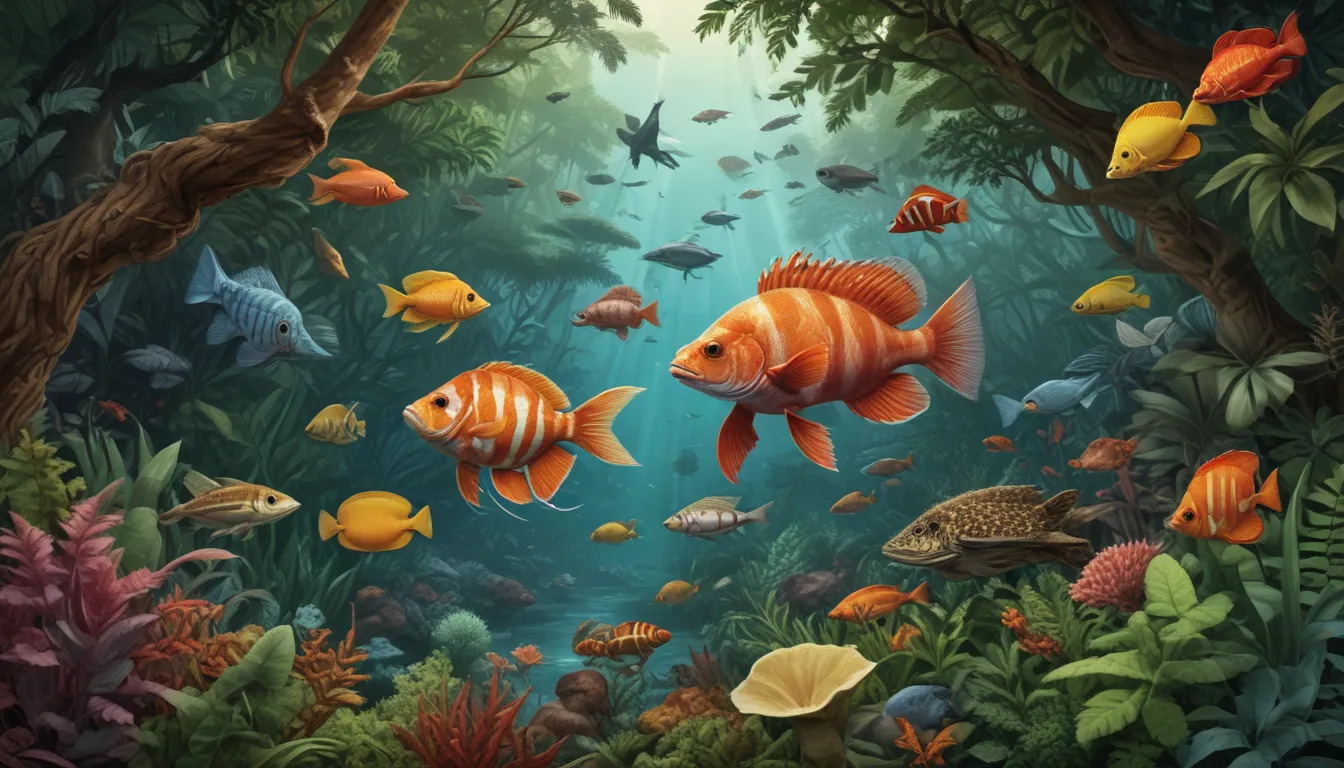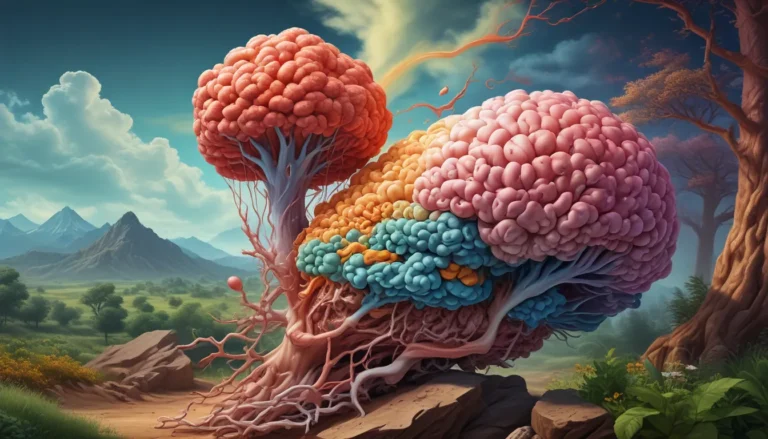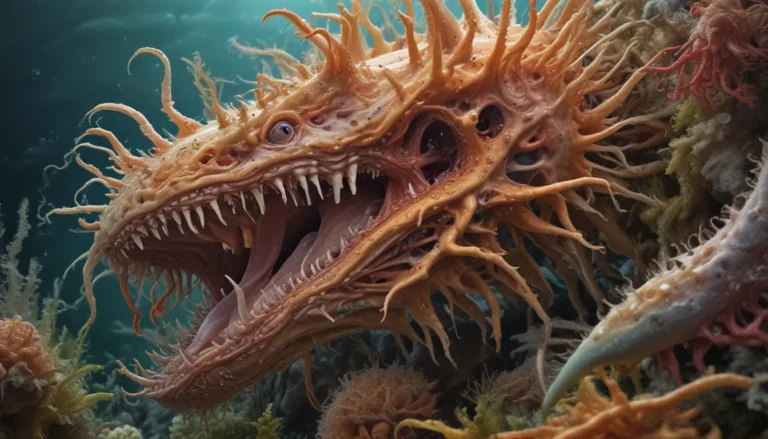A Note About Images: The images used in our articles are for illustration purposes only and may not exactly match the content. They are meant to engage readers, but the text should be relied upon for accurate information.
Welcome to the fascinating world of species diversity, where the natural beauty of our planet comes to life through the incredible variety of life forms that inhabit it. From the lush depths of the Amazon Rainforest to the vibrant coral reefs of Palau, each species plays a vital role in shaping the delicate balance of our ecosystems. In this article, we will unravel 20 astounding facts about species diversity that will captivate your imagination and inspire awe for the wonders of the natural world.
Unveiling the Marvels of Species Diversity
The Amazon Rainforest: A Biodiversity Hotspot
At the heart of the Amazon Rainforest lies a treasure trove of different plants and animals, with an estimated 10% of the world’s known species calling this lush ecosystem home. Protecting the Amazon is crucial, as it not only sustains a staggering amount of biodiversity but also provides essential ecosystem services that benefit all life on Earth.
The Hidden World of Undiscovered Species
Despite our scientific advancements, we have only scratched the surface when it comes to understanding the full extent of Earth’s biodiversity. Scientists estimate that there could be anywhere between 5 and 100 million species on our planet, yet we have only described around 1.7 million so far. The oceans, in particular, are a vast frontier waiting to be explored, with more than 90% of marine species still awaiting discovery.
Tropical Rainforests: Nature’s Treasure Troves
Tropical rainforests are biodiversity hotspots, boasting incredibly high levels of species diversity due to a combination of favorable climate, abundant resources, and long evolutionary history. The intricate web of life found in these ecosystems highlights the interconnectedness of all living organisms and the importance of preserving their delicate balance.
The Importance of Species Diversity
Ecosystem Stability and Resilience
Species diversity is not just a matter of scientific curiosity; it is essential for the stability and resilience of our ecosystems. A diverse range of species ensures that ecosystems can withstand environmental changes or disturbances, maintaining a dynamic balance that supports the overall health of our planet.
Economic Benefits and Practical Applications
The preservation of species diversity also has practical applications in fields such as medicine, agriculture, and conservation. From the discovery of new medicines to the development of sustainable farming practices, diverse species offer a wealth of potential opportunities that can benefit both human well-being and environmental health.
Threats to Species Diversity and Conservation Efforts
Habitat Destruction and Biodiversity Loss
Large-scale habitat destruction, including deforestation, urbanization, and pollution, poses a significant threat to species diversity worldwide. The loss of habitats disrupts ecosystems, leading to the decline of species and the degradation of essential ecosystem services that support human livelihoods.
Climate Change and Its Impacts
The ongoing changes in our climate, including rising temperatures and shifting weather patterns, have a profound impact on species diversity. Ecosystems are facing unprecedented challenges as species struggle to adapt to rapidly changing environments, highlighting the urgent need for conservation efforts and sustainable practices.
Conservation Initiatives and Future Prospects
Efforts to protect and conserve species diversity are underway, with organizations, governments, and individuals working together to safeguard biodiversity and combat biodiversity loss. By promoting awareness, supporting conservation initiatives, and practicing sustainable living, we can ensure that the incredible diversity of life on Earth continues to thrive for generations to come.
Embracing the Beauty and Complexity of Species Diversity
As stewards of this planet, it is our responsibility to appreciate and protect the astounding diversity of life that surrounds us. From the smallest insects to the largest mammals, each species plays a unique role in maintaining the delicate balance of nature. By nurturing our planet’s biodiversity, we can ensure that future generations inherit a world rich in beauty, wonder, and inspiration.
Conclusion
In conclusion, species diversity is not just a concept to be studied; it is a living testament to the remarkable intricacies of life on Earth. By exploring the wonders of species diversity and embracing the beauty of our planet’s biodiversity, we can cultivate a deeper appreciation for the interconnectedness of all living organisms. Let us continue to marvel at the astonishing complexity of nature and work together to protect and preserve species diversity for the benefit of all life on Earth.
FAQs
Q: Why is species diversity important?
A: Species diversity is crucial for ecosystem stability, promoting the discovery of new medicines, and enhancing resilience against environmental changes.
Q: How can individuals contribute to the conservation of species diversity?
A: Individuals can support conservation efforts by reducing their ecological footprint, promoting sustainable practices, and raising awareness about the importance of biodiversity.
Q: Are there benefits to preserving species diversity?
A: Yes, preserving species diversity has numerous benefits, including improved ecosystem services, potential medical breakthroughs, and cultural and aesthetic value.
Join us on this journey of discovery as we unravel the mysteries of species diversity and celebrate the beauty of life on Earth. Together, we can preserve and protect the rich tapestry of biodiversity that surrounds us, ensuring a vibrant and thriving planet for generations to come.





